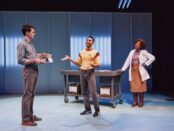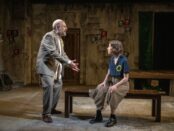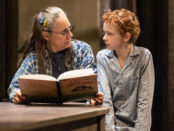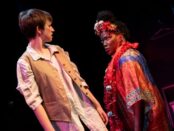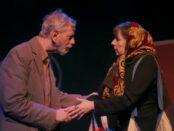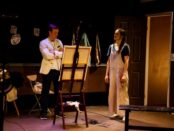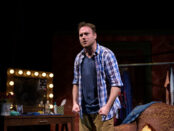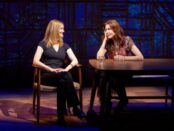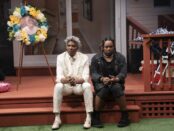Love + Science
As for the play itself, "Love + Science" tells a good story, even if not necessarily a new one. It’s largely another history of AIDS with a few scientific sprinkles thrown in. Where Glass’ script succeeds is in its characters and their determination. There are two especially poignant moments, conveyed by Melissa and Jane (both played by Williams), where they each confront Matt about how damaging his indecisiveness over owning his homosexuality is. And the scene where Jeff reproaches Matt for telling James that AIDS is 100% fatal is riveting. Lastly, it’s in the final scene where Glass’ play provides its most powerful message, when a now middle-aged Matt in 2021 compares the body count of AIDS to that of COVID-19, contrasting the swiftness with which the governments of the world produced a vaccine for COVID-19 where they have yet to create a vaccine for HIV, 40 years into the AIDS pandemic. [more]

